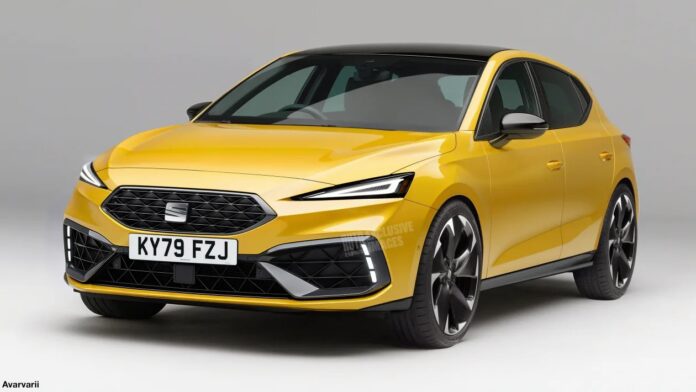The automotive landscape is shifting, and SEAT is stepping into the spotlight with plans for its iconic Leon model. Despite the success of its performance sub-brand, Cupra, which continues to gain momentum with numerous new model launches, SEAT had been perceived as taking a backseat within the Volkswagen Group. However, during the delayed media launch of the updated Ibiza, SEAT executives addressed long-standing questions about the brand’s future direction, confirming that the upcoming Leon will play a pivotal role.
Alongside the announcement of mild-hybrid powertrains for the Ibiza and Arona in 2027, SEAT revealed that the fourth-generation Leon will receive a new electrified engine—a full-hybrid system—in 2028. This initiative precedes a major Leon update scheduled for 2029. The new powertrain will feature a 1.5-litre four-cylinder petrol engine paired with an electric motor and a seven-speed DSG transmission, available in two power configurations: 134bhp or 167bhp. This setup is expected to deliver significant improvements in fuel efficiency and lower emissions, with the capability to drive the front wheels either through the petrol engine or electric motor.
The electrification of the Leon isn’t limited to the hatchback; the Estate variant will also receive the hybrid powertrain. Following the introduction of the hybrid model, SEAT plans to unveil an “updated Leon range” in 2029. Given that the current Leon is nearly a decade old, this update is expected to involve a substantial redesign, though it may retain the MQB evo platform. SEAT emphasizes that maintaining mild-hybrid and plug-in hybrid options will be crucial for expanding the model’s market reach.
The upcoming Leon will also feature a more modern design, moving closer to SEAT’s evolving design language. While details are scarce, exclusive previews suggest a sportier and more angular appearance, distinguishing it from other Volkswagen Group vehicles, including the closely related Cupra brand. This design evolution is part of SEAT’s broader strategy to reposition itself as a dynamic player in the competitive compact car market.
SEAT’s executive vice president for sales and marketing, Sven Schuwirth, hinted at a larger update in 2029, following smaller changes introduced last year, including infotainment upgrades and the addition of a plug-in hybrid variant. He emphasized that SEAT aims to balance affordability with emotional appeal, stating, “We don’t like focusing on value alone, we are a Spanish brand and we will certainly keep some of the emotional level, because that is a real asset.”
The Leon is central to SEAT’s future, as the brand is increasingly viewed as an entry-level offering within the Volkswagen Group. To compete with rivals like Volkswagen and Skoda, and even challenge more budget-focused brands like Dacia, Schuwirth acknowledged the potential for SEAT to offer competitive pricing. However, he stressed that the brand’s Spanish heritage and emotional connection to its vehicles will remain a key differentiator.
For those eager to experience the current Leon before its next evolution, options are available through services like Auto Express’s Buy a Car platform, with prices starting just above £18,000.
In conclusion, the electrification and upcoming updates for the SEAT Leon signal a renewed focus on the model as a cornerstone of the brand’s strategy. With hybrid powertrains on the horizon and a major redesign planned, SEAT is poised to leverage the Leon’s legacy to regain its place in the automotive spotlight

























